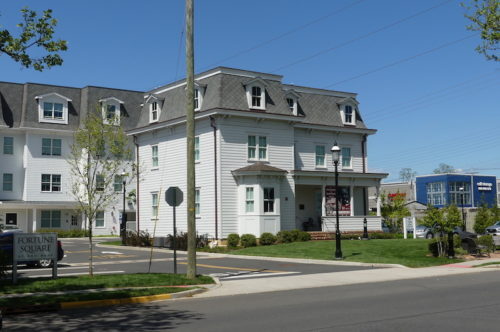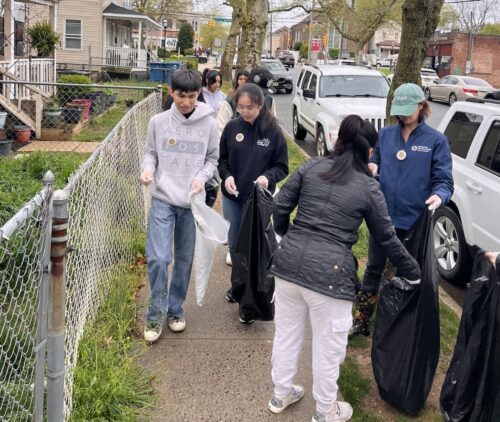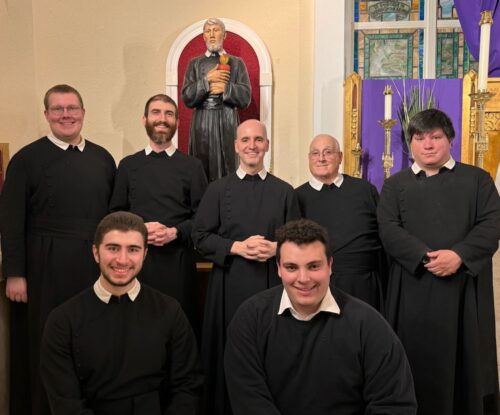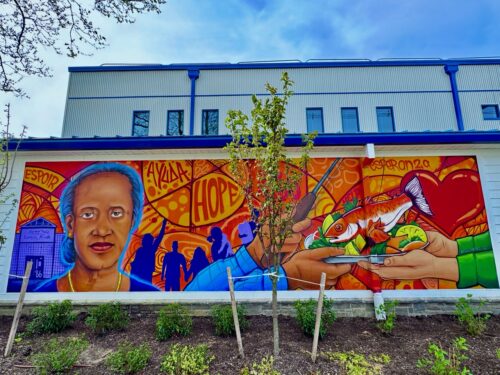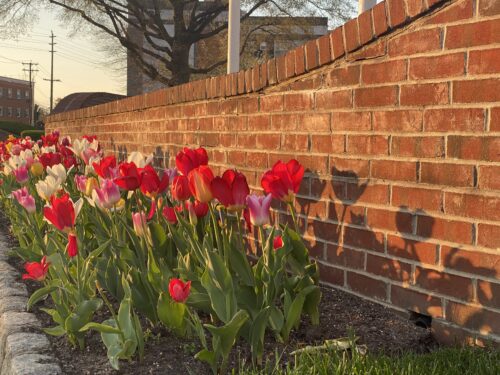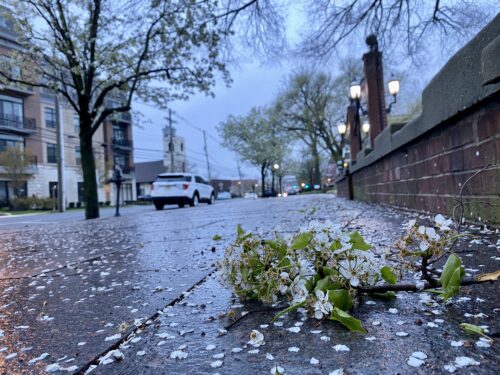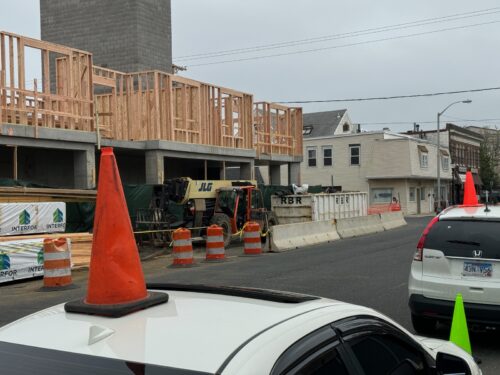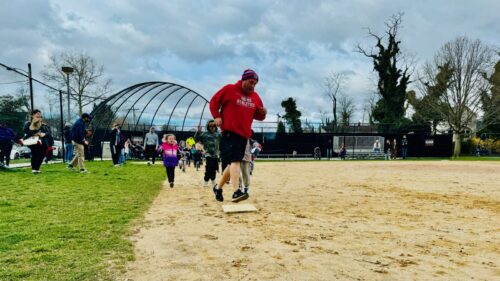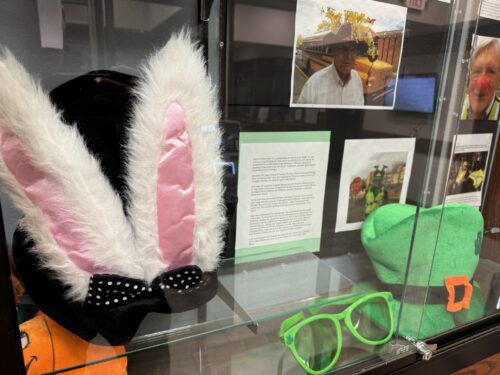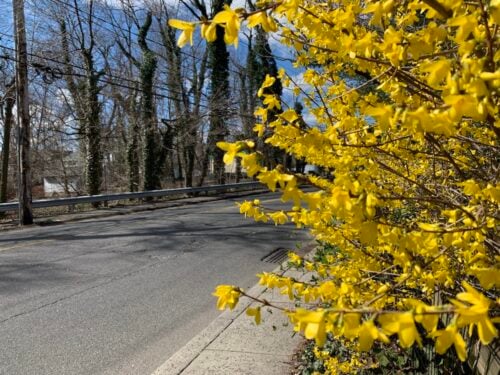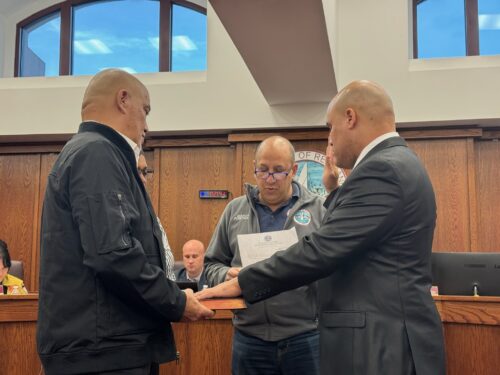By JOHN T. WARD
Daniel J. O’Hern, a son of Red Bank who was its mayor through a period of social unrest and later served almost two decades on the New Jersey Supreme Court, died Wednesday night at his home in Little Silver.
The Star-Ledger reports that he died of metastatic brain melanoma.
“Dan O’Hern was the quintessential gentleman who represented Red Bank so well in so many aspects,” said Mayor Pasquale Menna, who said he was inspired by O’Hern’s example to pursue public service.
Noting the racial strife of the late 1960s, when O’Hern was a borough councilman and, starting in 1969, as mayor, Menna said O’Hern “led the borough at an exceedingly difficult time, when there was great social friction.”
When Dr. Martin Luther King Jr. was assassinated in 1968 and many towns and cities braced for the kind of violence that had erupted in Newark and elsewhere, O’Hern marched down Shrewsbury Avenue with local ministers and citizens in a peaceful memorial, Menna said.
Through sit-ins and noisy council meetings, “it was always a mark of his sensitivity that he was able to keep the tensions so that they did not rise to a level of civil strife,” Menna said.

O’Hern was born on on Locust Avenue, near the intersection of Leighton Avenue, and remained a borough resident until about 10 years ago, when he and his wife, Barbara, moved to the Alderbrook complex on Harding Road in Little Silver.
A Navy veteran and chaplain to the Red Bank Fire Department, O’Hern “never missed a Memorial Day or Veteran’s Day service,” where he would hang quietly at the back of the crowd, Menna said.
O’Hern recently met up with a group of silverhaired retired firefighters at the Navesink Hook & Ladder house for a group photo, said Menna.
O’Hern served as acting mayor in 1966, and as mayor from 1969 to 1978.
When Menna was elected mayor in 2006, redbankgreen asked the town’s former mayors what advice they would give him. Here’s O’Hern’s reply:
I would advise him to keep the streets clean and pick up the
garbage. Thats what people really want. What that translates to is
municipal services. Thats the thing that the city government has to do.
There was a famous event in Queens when I was in politics in which
(New York City Mayor John V.) Lindsay couldnt get the snow off the
ground. The people went for his throat. So thats the thing, to make
sure the city government works.
From the Sledger obituary:
“Justice O’Hern was a wonderful and distinguished member of the New
Jersey Supreme Court for 19 years. The justices that served with him
admired and respected him,” former Justice Gary Stein, who served on
the court with O’Hern, said Wednesday night. “He had a passion for
justice and a great appreciation of the importance of an independent
judiciary. He loved the service on the court.”Stein said his friend’s diligence made the court better.
“He was aware that justice was not always perfect and so he brought
to the court a great sense of balance and perspective and helped his
colleagues to overcome their disagreements in many important cases,”
Stein said.O’Hern, who served on the court from 1981 until he retired in 2000,
authored 231 majority opinions, including decisions that gave battered
spouses the right to sue their ex-mates, protected the rights of the
homeless and a series of rulings that gave the press access to public
records.Some cases in which he ruled went as far as the U.S. Supreme Court
— including a case on the propriety of school officials searching the
pocketbook of a Piscataway High School girl.During O’Hern’s first year on the court, he wrote a majority opinion
that the search violated the girl’s privacy rights and was an
unreasonable search and seizure. The case sparked a national debate
about school searches and eventually was reversed by the nation’s
highest court.When he retired from the court on his 70th birthday, O’Hern said he
could not name his favorite decision. Instead, he would quote his
mentor, the late U.S. Supreme Court Justice William Brennan Jr., who
always replied: “That’s like asking which is your favorite child.”O’Hern was considered by many to be a consensus builder who believed
the court should be unanimous on important issues. But he was not
afraid to disagree with his colleagues, and during his tenure he wrote
142 dissenting opinions.Born in Red Bank in 1930, O’Hern fell in love with the law at a
young age. He admired Jack Quinn, a beloved Monmouth County lawyer who
employed O’Hern’s aunt, Carolyn Galdiero, as a legal secretary. She and
his uncle, Daniel O’Hern, for whom he was named, convinced O’Hern’s
parents, John Henry, a traveling salesman, and Eugenia, a homemaker,
their son should pursue law.As a teenager, he earned a scholarship to Regis High School, a
highly selective Jesuit school for boys on Manhattan’s Upper East Side.
From there, he went on to Fordham College, where he majored in math —
which he believed trained the mind for the practice of law — and
graduated cum laude. During the Korean War, he served in the Navy as an
arrested gear officer and guided pilots to safe landings aboard the USS
Essex.O’Hern graduated cum laude from Harvard Law School in 1957 and then
served as a clerk with Brennan — with whom he remained close until
Brennan’s death. He was admitted to the District of Columbia bar that
same year and the New Jersey bar a year later. In 1967, he was admitted
to practice before the U.S. Supreme Court.He entered politics in 1962 when was elected a Democratic councilman in Red Bank. He became mayor in 1969.
In 1978, former Gov. Brendan T. Byrne appointed him commissioner of
the state Department of Environmental Protection. The following year,
Byrne named him counsel to the governor.Byrne nominated O’Hern to the state Supreme Court on Aug. 6, 1981.
Former Gov. Thomas H. Kean renominated him in 1988. He served as
justice until reaching the mandatory retirement age of 70 on May 23,
2000.In 2004, former Gov. Richard Codey appointed O’Hern special counsel
for ethics reform along with Seton Hall law professor Paula Franzese.
Their work led to ethics reform of the state’s executive branch and New
Jersey’s first Uniform Ethics Code.Shortly before his death, O’Hern co-wrote with Franzese an article
advocating similar reforms at the local government level. The article
appears on today’s Star-Ledger Op-Ed page.O’Hern served on the Advisory Committee on Professional Ethics and
was a trustee for the Legal Aid Society of Monmouth County. He was a
past president of the Harvard Law School Association of New Jersey. He
formerly practiced law with the Red Bank firm of Abramoff, Apy and
O’Hern.O’Hern is survived by his wife of 50 years, Barbara Ronan O’Hern;
five children, Daniel O’Hern Jr., Eileen O’Hern Luby, James O’Hern,
John O’Hern and Molly O’Hern Wallace; two sisters, Catharine O’Hern and
Eugenia Witterschein; a brother, Dr. J. Henry O’Hern Jr.; and eight
grandchildren.Visitation will be held from 3 to 8 p.m. Friday at the Church of the
Nativity, 180 Ridge Road, Fair Haven. Funeral services will be held at
11 a.m. Saturday at St. James Roman Catholic Church, 94 Broad St., Red
Bank.



